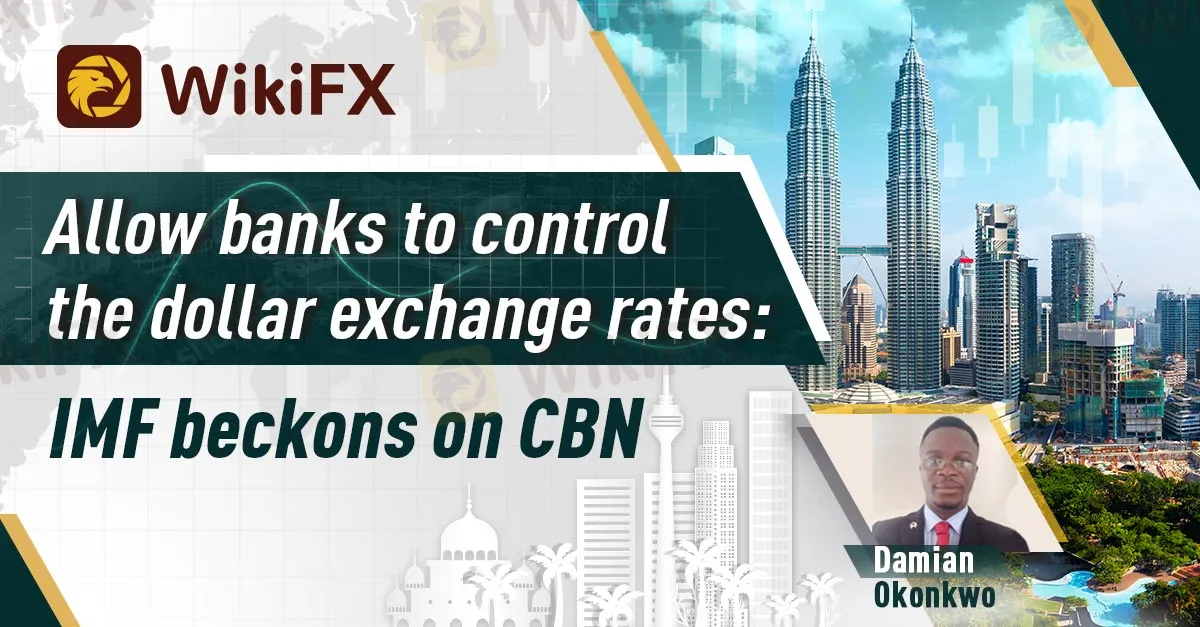简体中文
繁體中文
English
Pусский
日本語
ภาษาไทย
Tiếng Việt
Bahasa Indonesia
Español
हिन्दी
Filippiiniläinen
Français
Deutsch
Português
Türkçe
한국어
العربية
Allow banks to control the dollar exchange rates: IMF beckons on CBN
Abstract:The International Monetary Fund (IMF) has called on the Central Bank of Nigeria (CBN) to re-examine its foreign exchange (FX) management policy which allowed the apex banks to control the dollar exchange rates within the country. They considered this as limiting the market volatility by preventing the commercial banks to freely determine Fx buy-sell rates in the I&E windows.

By: Damian Okonkwo

The International Monetary Fund (IMF) has called on the Central Bank of Nigeria (CBN) to re-examine its foreign exchange (FX) management policy which allowed the apex banks to control the dollar exchange rates within the country. This had left the commercial banks sourcing to obtain dollars for their clients.
Addressing the present FX crisis in Nigeria in its 2022 Article IV Consultation presented during its official visit to the country, the IMF called on the CBN to allow the commercial banks to control the dollar exchange rates including the buy-sell prices as this will help reduce the dollar scarcity and improve the FX supply in the market. According to the IMF:
“In the medium term, the CBN should step back from its role as main forex intermediator, limiting interventions to smoothing market volatility and allowing banks to freely determine forex buy-sell rates.”
Thus, the IMF believed that allowing commercial banks to control the exchange rate will further increase the FX inflow into the country.
Speaking further on this, the IMF explained that the banks maintaining a uniform and market-clearing FX exchange rate is very necessary for boosting foreign investors' confidence in the economy.
Nonetheless, IMF stated that the continued present FX shortage, and practice of maintaining a stable exchange rate by the CBN amidst a weak Naira due to high inflation and limited debt servicing policies will all the more trigger fears of more future devaluation for the Naira amongst investors.
Describing this, the IMF stated that “These factors hinder much-needed capital inflows, encourage outflows, and constrain private sector investment.”
Above all, the body advised the Nigerian government to consider reducing its tax rate to fair levels at par with the standards of the Economic Community of West African States (ECOWAS).

Disclaimer:
The views in this article only represent the author's personal views, and do not constitute investment advice on this platform. This platform does not guarantee the accuracy, completeness and timeliness of the information in the article, and will not be liable for any loss caused by the use of or reliance on the information in the article.
Read more

Global Brokers Vs. Indian Rules: Why They Struggle in India
RBI issued a warning last year against 75 forex brokers. Those brokers are globally popular and regulated in other countries, but they are banned in India. Only few brokers even have physical offices located in India. So, why do global brokers face so many challenges in entering the Indian market?

Major Risks Associated with AuxiliumFX: You Need to Know
Risks are attached to every broker you choose—but the question is, do you know what those dangers are? Today, we’ll explain the risks associated with AuxiliumFX—and how this broker could potentially turn you into a victim.

Discover 5 Benefits of Trading with Trive FX Broker
When you decide to finally start trading, the first thing you need to do is choose a broker. While selecting a Forex broker, you should know the benefits you’ll receive by choosing that particular one. In this article, we will discuss the 5 benefits of Trive.

FCA Overhauls Rules on Non-Financial Misconduct in Financial Services
The FCA has launched a new consultation to strengthen rules against non-financial misconduct, aiming to align standards across the financial services industry and bolster public trust.
WikiFX Broker
Latest News
Tokenized Stocks: Innovation or Just Another Wrapper?
XTB Launches Tax-Advantaged Retirement Accounts in Poland
Zaffex Broker Review
ECB Ends Easing Cycle, But The Eurozone Crisis Is Just Beginning
Amazon deploys its 1 millionth robot in a sign of more job automation
Gold Rush Again: What's Driving the Bullion Market Crazy Ahead of US Jobs Data?
10-year Treasury yield remains higher despite weak ADP jobs report
Blueberry Markets Revamps its Website
The private sector lost 33,000 jobs in June, badly missing expectations for a 100,000 increase, ADP says
MT4 and MT5 Platforms - Helping Traders Up Their Forex Trading Game
Currency Calculator


